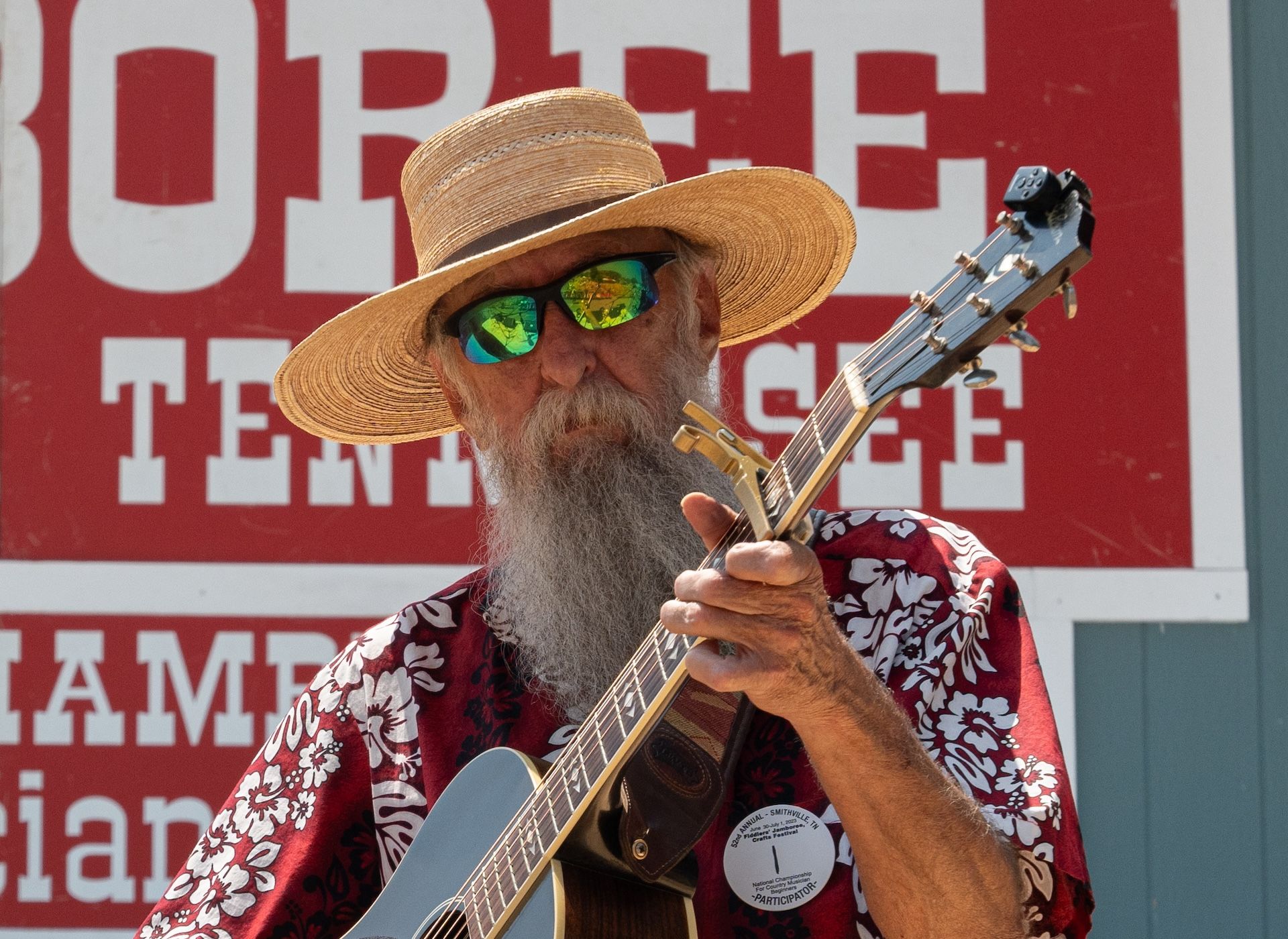
Pickin' & Fiddlin' in the Upper Cumberland
The 53rd annual Smithville Fiddlers’ Jamboree And Crafts Festival celebrates Tennessee’s musical heritage this July 4th weekend.
Kim Luton is finishing her second year as president of the Smithville Fiddlers’ Jamboree, but it’s an event that’s been part of her life since she can remember. “I’ve been in this thing 53 years,” Luton said on a break from final preparations of the festival, which runs July 5-6 in Smithville, TN.
Founded in 1972 by former Democratic Congressman Joe L. Evins, his chief of staff, Berry C. Williams, and bluegrass musician James G. “Bobo” Driver, the event that began on the steps of the DeKalb County Courthouse now routinely draws 30-35,000 attendees each year. “They wanted to preserve Appalachian music, dance, and craft,” Luton, who is the granddaughter of Driver, said. “They wanted to do something for the downtown area. It’s a drag in July. It’s kind of dead. So they came up with this idea of an Appalachian-style craft festival with bluegrass to start preserving the history of this area.”
In addition to dozens of booths featuring local artisans, the festival boasts fifty competitions for musicians at all levels of experience, including categories devoted to dulcimer, mandolin, jug blowing, and clogging. Events are open to musicians of all ages, and the festival takes pride in watching the careers of those who first enter during their grade school years, including four-time Grammy-winning fiddler Andy Leftwich and internationally renowned mandolin player Sierra Hull. “So many young people have come through that stage and gone on to professional careers,” Rob Pearcy–who has earned 60 first-place awards at the competition–said.
A town of just over 5,000 residents according to the 2020 census, Smithville has long been a draw for those who make their living on Music Row but want to remain rooted in the region responsible for their craft. Alan Jackson built a lakehouse there before stepping back from the limelight in the late aughts. 90s country staple Aaron Tippin continues to live in the area and founded a firearms and outdoor equipment store in town. It was also home to blues legend Lonnie Mack as well as Dottie West–the first woman to win a Grammy for Country music.
An eighth-generation resident of Smithville, Luton grew up steeped in the town’s musical heritage, which began in the 1800s when settlers from Virginia brought their dulcimer, fiddle, and square dancing traditions with them. Sunday gospel concerts and lazy summer afternoons under trees were the primary weekend entertainment, which made music an integral part of life. It also led to one of Luton’s favorite aspects of the festival: the amateur "shade tree pickers," who camp out under trees during the event and serenade visitors. "They just kind of have a jam session," she said. "There might be a bass and fiddle and the banjo. You'll see them all around town in the shade areas."
For Pearcy, the festival’s exponential growth in the late 80s led him to a career in music–both as a multi-instrumentalist and, eventually, a teacher in the Metro Nashville Public School System. His big break came when PBS began televising the event nationally, which opened up opportunities at festivals and competitions across the country. “I’ve been everywhere from Colorado to Carolina,” the 72-year-old said.
Despite the festival’s reputation and popularity, Luton and the rest of the event’s board are dedicated to keeping it free of charge thanks to an abundance of local, state, and national sponsors from Walmart and ACE Hardware to DTC Communications and the Tennessee Entertainment Commission.
The festival has become such a staple of Tennessee’s culture calendar that, even during COVID, Luton and her team devised a way to keep it going virtually so they wouldn’t miss a year. That momentum helped the event evolve and undertake new initiatives such as a category that features musicians and dancers with disabilities. “It started out with some Down syndrome adults in California. They were learning how to clog, and they had nowhere to go and compete. So, they sent in their videos, and, hopefully, next year, they'll travel here,” Luton said. “We're trying to get the word out that we do have these categories open to other people and that we want to include them.”
In addition to establishing categories for those with disabilities, this year’s event also features a print tabloid program dedicated to Pearcy, who has won multiple state championships since he first appeared at the jamboree in 1979. “I went and hung out with the old guys, he said. “Now I’m the old guy.”
A full schedule and more information about the Smithville Fiddlers’ Jamboree And Crafts Festival are available on the event’s website.
